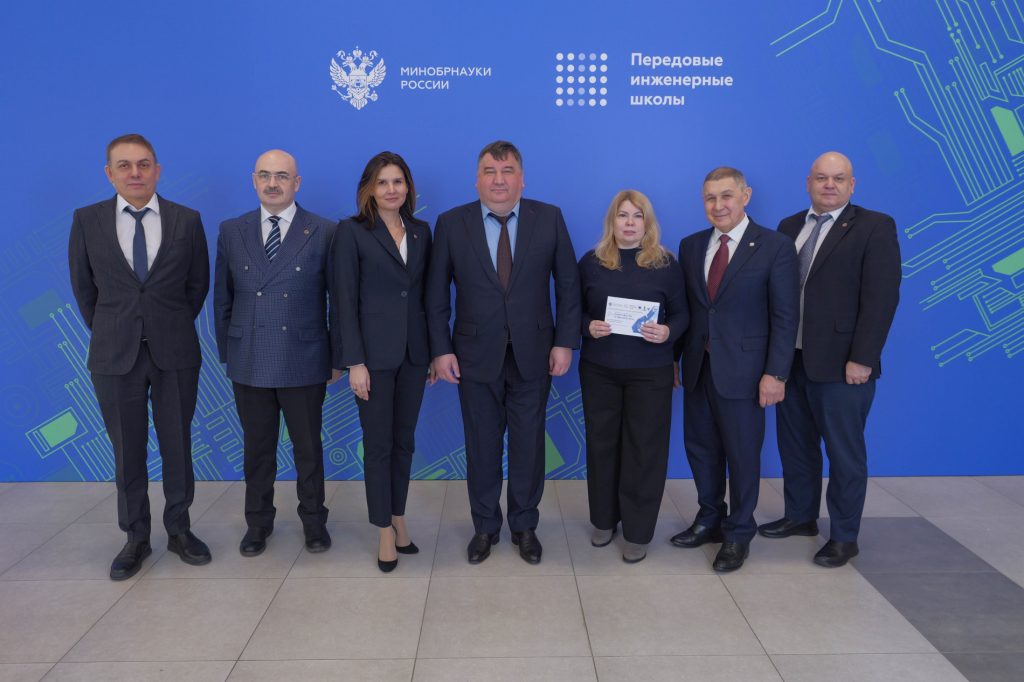Cyber Auto Tech engineering school’s progress in 2023 reported in Moscow

The Council on Advanced Engineering Schools listened to project participants to make decisions about further funding.
KFU was represented by Rector Lenar Safin, Vice-Rector for Economic and Strategic Development Marat Safiullin, Director of Cyber Auto Tech Guzel Kapitonova, and Scientific Supervisor of Cyber Auto Tech, Director of Naberezhnye Chelny Institute Georgy Kotiev. The Republic of Tatarstan was represented by President of the Tatarstan Academy of Sciences Rifkat Minnikhanov and Director for Development of KAMAZ Irek Gumerov. The meeting was helmed by Minister of Science and Higher Education of Russia Valery Falkov.
In her report, Guzel Kapitonova emphasized that the main goal of Cyber Auto Tech is to train a new type of engineering personnel capable of implementing breakthrough developments and conducting research in the field of unmanned vehicles, high-efficiency non-carbon fuel vehicle power plants, digital modeling and control of automotive production systems.
According to her, the School is aimed at creating an ecosystem of infrastructure, equipment, teaching methodology, and university-industry relations.
“In 2023, together with KAMAZ and leading Russian universities, we developed and launched 3 educational programs, as well as conducted training in 5 unique programs of additional education for KAMAZ and RIAT engineers. In addition, 11 new research and training laboratories equipped with modern high-tech equipment were created. Based on the results of the school’s scientific research, 10 results of intellectual activity were registered and 22 scientific articles were published,” added Kapitonova.
The School Director then spoke in detail about three main research areas: vehicles with zero/low carbon footprint, intelligent vehicles, and intelligent manufacturing technologies.
In the first area, based on a 1D model of a fuel cell battery, research was conducted to improve its performance characteristics, 3D CAD models of the fuel cell components were designed, a prototype of a single fuel cell was manufactured, and work is now underway to produce a full-size fuel cell.
In the second area, works were conducted on vehicle movement control systems for driverless vehicles. Real-life tests are planned on the federal M-11 freeway in the spring of 2024. A digital map of the M-12 freeway is also in the works.
Within the framework of the third project, new materials with specified properties for additive technologies are being created, technologies are being developed to improve the operational properties of traditional materials (cast iron and steel), and work is being carried out to improve the geometric accuracy and service life of complex-profile gears.
Irek Gumerov added that cooperation with KFU helped KAMAZ to obtain new prospective construction and technological solutions for car manufacturing.
As of now, KAMAZ is contributing to 11 R&D projects conducted at Cyber Auto Tech.
UPD 20 February 2024: Kazan University has been selected for the top tier of funding in 2024 and is set to receive 634.5 million rubles for the Cyber Auto Tech school during the year.

